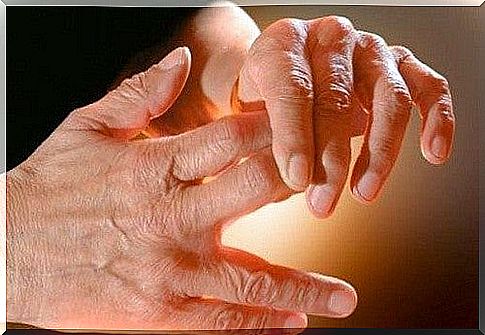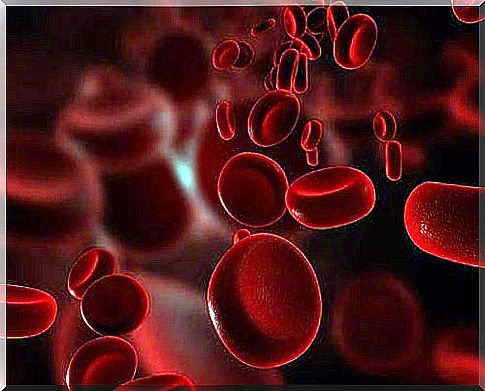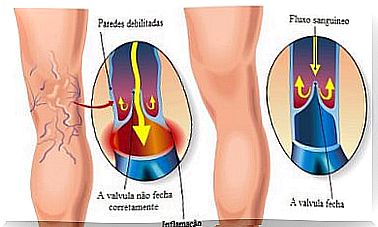Possible Causes Of Tingling In The Hands And Legs

Tingling in the hands and legs is a series of abnormal sensations that, in addition to causing discomfort, is also a cause for concern, since we don’t know what might be behind it. Although tingling usually occurs in various parts of the body, it is felt most often in the hands, feet, arms or legs.
At first we can ignore the tingling in our hands and legs, but when we feel it frequently and for no real reason, it may be telling us that something is not working well in our bodies, which could be a symptom of an illness.
Tingling may be the symptom of a mild infection, but it could also indicate that we are suffering from some illness that requires more care, so it is important to see a doctor if you experience a tingling sensation in your hands and legs frequently. Next, we’ll mention some of the illnesses that are commonly associated with the hands and legs.
Hypoesthesia
Tingling may be one of the symptoms of so-called hypoesthesia, a loss of sensation accompanied by this uncomfortable sensation. In case you have these two symptoms, you must be very careful, as it can be a more than temporary illness.
Circulatory problem

When a person has circulatory problems, they may occasionally feel tingling sensations in their hands and legs. You may also experience these sensations if you are suffering from tiredness and/or nervous exhaustion. If the tingling problem increases and becomes constant, it could indicate something more serious. In this case, the best thing to do is to consult a doctor.
Buerger’s Disease
This disease is associated with tobacco consumption; It initially presents with pain caused by lack of blood flow, called lameness, in the hands or feet. The person feels a constant tingling and numbness in the hands, followed by the fingers or toes. This case is very delicate, as if left untreated, it can cause gangrene to develop.
Diabetes

Diabetes is one of the most common illnesses today, which occurs when blood sugar levels rise. Tingling is a typical symptom of this condition, as there may be insufficient blood flow, which can later cause the person to feel this uncomfortable tingling sensation in their hands and legs. This symptom may indicate ulcers, which must be treated in time to prevent gangrene from forming.
Multiple sclerosis
Numbness or tingling in the hands and legs is one of the first symptoms that appear in people with multiple sclerosis. This illness can also include increased burning sensation and tenderness. This type of sensation is produced by insufficient blood flow in these affected areas and problems in the nervous system.
Acute inflammatory demyelinating polyneuropathy
Acute Inflammatory Demyelinating Polyneuropathy (or AIDP) is one of those uncommon and very rare diseases that prevent nerves from sending signals to muscles in the body. Tingling is a symptom of this disease, usually appearing on the feet and legs, although as time passes, it also spreads through the arms and hands.
Restless Leg Syndrome

The tingling in the extremities that many people often experience at night can also be associated with a disorder called restless legs syndrome. This is one of the most common symptoms, though not the only one.
Those who suffer from this syndrome may also experience pain, cramps and itching, accompanied by problems with insomnia, as these symptoms usually get worse at night. This syndrome can be caused by anemia, kidney failure, or peripheral neuropathies, although an exact cause is not known.
Other causes of tingling in the hands and legs:
- Sitting or standing in the same position for a long time.
- Injury to a nerve.
- Pressure on the spinal nerves as a result of a herniated disc .
- Have abnormal levels of calcium, potassium or sodium in your body.
- Lack of vitamins, especially vitamin B12.
- Consumption of alcoholic beverages and/or tobacco, as lead causes nerve damage.
- Animal bites.
- Bites from insects, ticks, mites and spiders.
- Use of certain medications.









